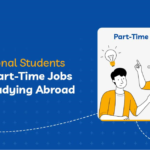Getting through job Visas in Canada application process could be challenging, but it’s essential for anyone looking to work in the Great White North. You will learn everything you need to know about obtaining a work visa in Canada from this book, from comprehending the many kinds of visas to applying for one. This page will guide you through the procedure whether you’re a starting a business, a student, or a skilled job.
1. Introduction to Job Visas in Canada
1.1. What is a Job Visa?
For a restricted period of time, foreign nationals can remain and work in Canada if they have an employment visa or work permit.
Unlike permanent residency, a job visa is usually temporary and tied to employment with a specific employer or within a certain sector.
1.2. Why Choose Canada for Employment?
Canada is renowned for its liberal immigration laws, high standard of living, and variety of career options.
With its strong economy and inclusive society, it’s a popular destination for skilled workers from around the world.
2. Job Visas in Canada
2.1. Work Permit: Open
An open work permit permits you to work for any business in Canada and does not require a specified job.
It’s ideal for those who want flexibility in their employment.
2.2. Employer-Specific Work Permit
This form of permission only allows you to work for a certain employer in a specified position.
It’s usually tied to a Labour Market Impact Assessment (LMIA) or an employer-specific agreement.
2.3. International Mobility Program (IMP)
The IMP facilitates work permits for international workers without requiring an LMIA. This program is aimed at promoting Canada’s economic, cultural, and social interests.
2.4. Permit for Postgraduate Work
With this visa, foreign students can work in Canada for a maximum of three years after completing a program at a Canadian educational institution.
3. Qualifications for Employment Visas
3.1. General specifications
Usually, in order to be eligible for a work visa, you must:
- An employment offer was made to me by a Canadian business.
- Meet specific qualifications and experience requirements.
- Pass a medical exam and background check.
- Demonstrate sufficient financial resources.
3.2. Specific Requirements for Different Visas
- Open Work Permit: Requires proof of your partner’s valid permit or proof of being a graduate from a Canadian institution.
- Employer-Specific Work Permit: Requires an LMIA or employer-specific agreement.
- IMP: Requires proof that your work benefits Canada’s interests.
- Post-Graduation Work Permit: Requires completion of a program from an eligible institution.
4. How to Apply for a Job Visa
4.1. Step-by-Step Application Process
- Determine the Right Visa Type: Based on your job offer and personal situation.
- Prepare Required Documents: Includes proof of job offer, identification, and any required forms.
- Submit Your Application: Either online or through a Canadian consulate.
- Wait for Processing: This can take several weeks to months, depending on the type of visa.
- Receive Your Work Permit: If approved, follow the instructions provided for entry into Canada.
4.2. Common Mistakes to Avoid
- Incomplete Applications: Ensure all required fields and documents are provided.
- Inaccurate Information: Double-check for errors or inconsistencies.
- Missing Deadlines: Be aware of application deadlines and processing times.
5. Work Permit Extensions and Renewal
5.1. When to apply for an extension.
To avoid losing your legal status, request for an extension before your present permission expires.
5.2. Renewal Process
The renewal process is similar to the initial application but may require additional documentation if your job or employer changes.
6. Impact of Job Visas on Permanent Residency
6.1. Pathway to Permanent Residency
Having a job visa can be a stepping stone to permanent residency through programs like the Express Entry system, Provincial Nominee Programs (PNPs), or Canadian Experience Class.
6.2. Benefits of Long-Term Residency
More security and opportunities, including the ability to live and work anywhere in Canada and access to social and medical services, are offered by permanent residency.
7. FAQs About Job Visas in Canada
7.1. How long can I stay in Canada on a job visa?
Job visas are normally provided for the term of your employment contract or a set period of time, usually three years. The length can vary based on the type of visa and job offer.
7.2. Can I switch employers while on a job visa?
It is usually not possible to change occupations with an employer-specific work permit unless you apply for a new one. Open work permits offer more flexibility.
7.3. What if my job offer changes after applying for a visa?
Depending on the extent of the modification, you might need to update your application or apply for a new permit if your employment offer changes significantly.
7.4. Can my family accompany me to Canada?
It is possible for your spouse and dependent kids to apply for travel visas to accompany you. They may also have the right to work or study in Canada.
7.5. What happens if my work permit expires while I’m still in Canada?
If your work permit expires, you must either leave Canada or apply for an extension to maintain legal status. Working without a proper permit might result in serious penalties.
Conclusion
Securing a job visa in Canada is a significant step towards building a new career and life in one of the world’s most welcoming countries. By understanding the types of visas, eligibility requirements, and application processes, you can navigate this journey more effectively. Whether you’re aiming for a temporary job or a path to permanent residency, careful planning and compliance with immigration regulations will set you up for success.










